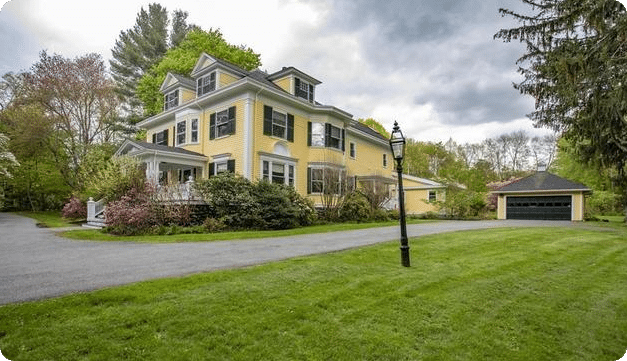Jul 10, 2025
What Is Sober Living and How Does It Help After Treatment?
Finishing addiction treatment is a significant accomplishment, but recovery doesn’t stop there. Staying sober after rehab can be tough without the proper support. That’s where sober living homes come in. Sober living homes provide a safe space to adjust to a healthy, substance-free life. For those in Massachusetts, there are many helpful options to support the next step in recovery.
What Is Sober Living and How Does It Work?
Sober living is a type of housing for people recovering from drug or alcohol addiction. These homes give individuals a safe and supportive environment where they can live with others who are also in recovery.
Unlike rehab centers, sober living homes are not medical or clinical settings. Residents can come and go, get a job, attend school, and live more freely. However, there are rules—like staying drug-free, helping with chores, and attending recovery meetings. These rules help create a stable and positive environment that supports long-term recovery.
Sober-living homes work best for people who have already gone through detox and/or treatment and need a stable place to live while they continue healing. It’s like a bridge between treatment and regular life.
Why Sober Living Matters After Addiction Treatment
After finishing a rehab program, going back home right away can be risky. Old habits, environments, and people can trigger relapse. That’s why many people find it helpful to first move into a sober living home.
Here are some major benefits of sober living homes:
1. Structure and Accountability
Sober living homes have set rules to help keep everyone on track. Residents often have curfews, are required to stay sober, and may need to attend group meetings. This framework can be beneficial for individuals transitioning back to life after rehabilitation.
2. Support from Others in Recovery
Living with others who are going through the same journey provides daily encouragement. Everyone understands what it feels like to face challenges, and they can support each other. Many people form lifelong friendships in sober living homes.
3. Learning Life Skills
People learn how to care for themselves in sober living—things like cooking, budgeting, finding work, or returning to school. These skills are key to building a new, independent life.
4. Fewer Triggers and Temptations
Being in a sober environment reduces the chances of being exposed to drugs or alcohol. It’s easier to focus on recovery when you’re not around the people or places that once fueled addiction.

Sober Living in Quincy, MA – Safe Housing After Addiction Treatment
If you’re looking for sober living, Quincy, MA offers several trusted programs and homes to support recovery. The city is committed to helping those transitioning from treatment find safe, stable housing. Local sober living homes often provide 24/7 staff support, clean and furnished spaces, group meetings, transportation assistance, drug testing, and access to life coaching and job training.
Many homes are gender-specific or designed for young adults or those with co-occurring disorders. The Massachusetts Center for Addiction partners with carefully vetted sober living homes in Quincy and nearby areas to ensure high-quality, supportive environments for continued recovery.
When Should Someone Consider Sober Living?
Not everyone needs sober living after treatment, but it can be extremely helpful in certain situations.
You may want to consider sober living if:
- You’ve relapsed in the past after treatment.
- Your home life isn’t supportive of recovery.
- You don’t have a safe or stable place to live.
- You’re nervous about handling sobriety on your own.
- You want to build stronger life skills before living independently.
Sober living homes aren’t forever. Most people stay for a few months to a year, depending on their needs. The goal is to help people feel confident, independent, and ready to move forward.
How to Find the Right Sober Home in Quincy
Looking for a sober living home can feel overwhelming, but Massachusetts Center for Addiction can help. Here are some tips for choosing the right home:
- Ask About Rules: Every home is different. Ask what’s expected of residents.
- Check the Location: Is it close to work, school, or public transportation?
- Meet the Staff: Talk to the house manager or staff to see if you feel comfortable.
- Look at the Support Offered: Does the home offer recovery meetings or peer groups?
- Read Reviews or Get Referrals: Ask your treatment provider or recovery coach for recommendations.
If you need help choosing a sober living option in Quincy, MA, the Massachusetts Center for Addiction can connect you with trusted homes that meet your needs and goals.
Healing Takes Time, and That’s Okay
Recovery is a journey that takes time, patience, and the right support. Sober homes give people in recovery a safe place to grow, heal, and prepare for life’s next chapter. They offer connection, guidance, and a second chance.
If you or someone you love is finishing treatment and wondering what comes next, consider sober living in Quincy, MA. The Massachusetts Center for Addiction is here to help every step of the way. Proper support makes a life of sobriety, peace, and purpose possible.
Need Help Finding Sober Living in Quincy?
Contact Massachusetts Center for Addiction today to learn about local sober living options, treatment resources, and ongoing support. We’re here to help you move forward—one step at a time.

Contact Us

Address
Quincy, MA 02169
Start your recovery with
Massachusetts Center for Addiction
Our team is available 24 hours a day, 7 days a week to answer any questions you may have. Give us a call today and begin your journey toward long-term recovery.








